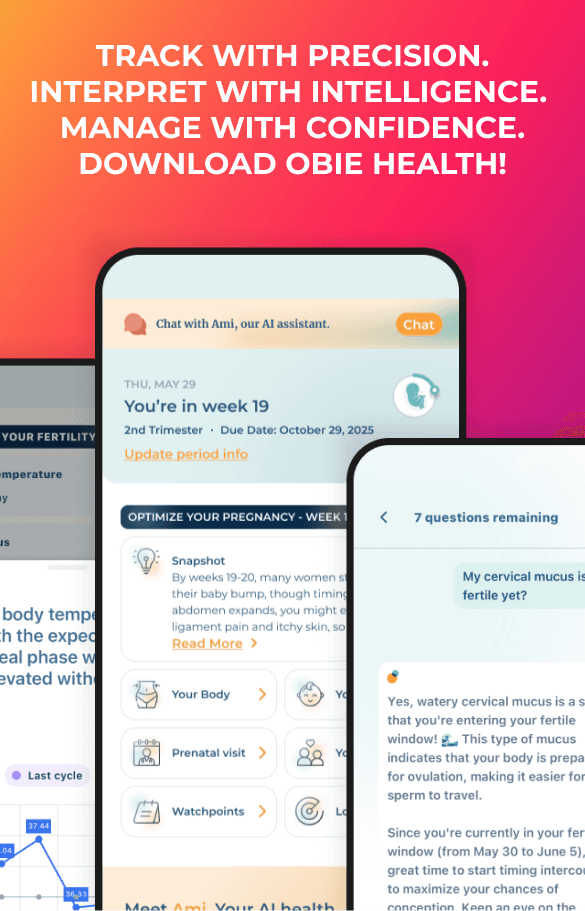How Changes in Altitude and Temperature Affect Pregnancy
Reproductive Health2
Obie Editorial Team
The winter holidays are upon us. 'Tis the season for travel. Many women find that travel during pregnancy brings new challenges even when traveling to familiar places. Holiday food and festivities will surely tempt any expectant mom to veer away from dietary and sleep routines but vigilance can minimize discomforts. Two challenges that can’t be minimized - altitude and temperature - can also affect how a woman feels when traveling pregnant.
Altitude
Altitude goes both ways, of course - up and down - but it affects the body most noticeably when travel takes us to an altitude higher than we are accustomed to. Especially during the first trimester of pregnancy, altitude sickness may be mistaken for morning sickness and “normal” discomforts of morning sickness may change.
The higher one goes, the less oxygen in the air, the lower the air pressure, and the less moisture. Dehydration is always a concern. The cooler, drier air draws moisture out of the lungs, making a steady flow of drinking water all the more important.
Altitude sickness feels more like the flu than morning sickness. Notify a nearby doctor if feelings of dizziness, fatigue, insomnia, shortness of breath, and unusual nausea don’t subside after a day or two of rest and steady fluid consumption.
Temperature
Temperature changes may be felt more markedly during pregnancy. Studies have shown that elevated temperatures are associated with an increased risk of preterm births. The heat may seem uncomfortably hot and the cold all the colder, even in the familiar places one traditionally spends the holidays. Ease into the climate change by relaxing the first few days after arrival. Stay cool and out of direct sun if traveling to a warmer location. Keep bundled up warm and cozy if heading to a cooler holiday destination.
To keep morning sickness at bay during holiday travels:
- Keep plain toast or crackers at bedside so they’re handy to nibble on upon waking. This may help delay or minimize morning bouts of nausea.
- Snack on something light every hour or so. An empty stomach encourages nausea.
- Keep meals light and healthy; the cheesy, greasy, gooey stuff of the holidays are too rich for a sensitive stomach to digest easily.
- Resist the urge to lie down right after eating. A prone position encourages indigestion. Wait at least half an hour or borrow dad’s recliner if napping right after eating proves irresistible.
- Keep water handy and sip it often. Peppermint and ginger teas offer refreshing relief to a troubled tummy.
Don’t take on challenges of entertainment or shopping this year when you can catch up with them next year. Let somebody else orchestrate the festivities this time around. Remember, next year you’ll be juggling holiday commitments plus a new baby. Indulge yourself in a holiday as free from stress as possible now, while you can.







